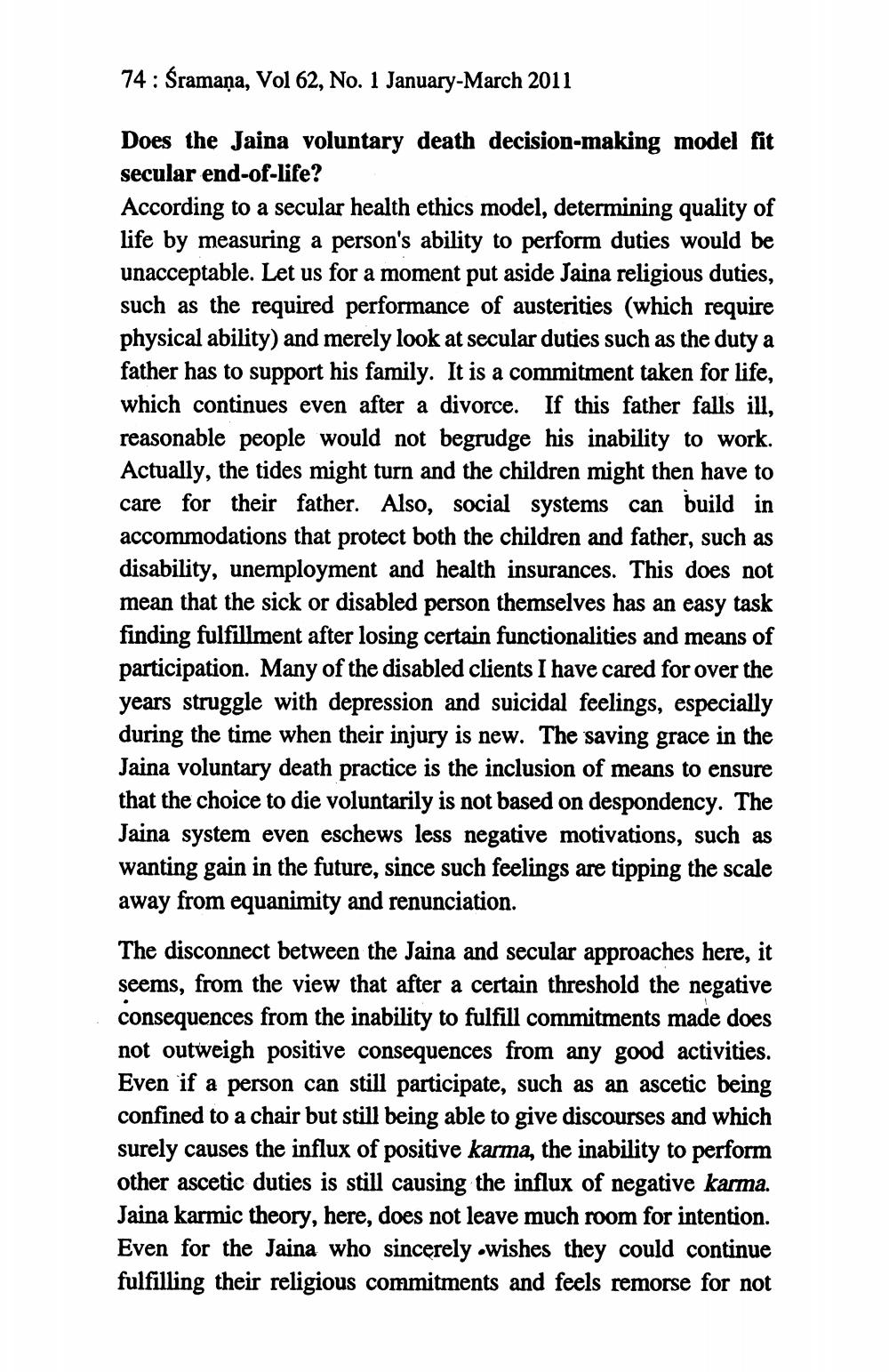________________
74 : Sramaņa, Vol 62, No. 1 January-March 2011
Does the Jaina voluntary death decision-making model fit secular end-of-life? According to a secular health ethics model, determining quality of life by measuring a person's ability to perform duties would be unacceptable. Let us for a moment put aside Jaina religious duties, such as the required performance of austerities (which require physical ability) and merely look at secular duties such as the duty a father has to support his family. It is a commitment taken for life, which continues even after a divorce. If this father falls ill, reasonable people would not begrudge his inability to work. Actually, the tides might turn and the children might then have to care for their father. Also, social systems can build in accommodations that protect both the children and father, such as disability, unemployment and health insurances. This does not mean that the sick or disabled person themselves has an easy task finding fulfillment after losing certain functionalities and means of participation. Many of the disabled clients I have cared for over the years struggle with depression and suicidal feelings, especially during the time when their injury is new. The saving grace in the Jaina voluntary death practice is the inclusion of means to ensure that the choice to die voluntarily is not based on despondency. The Jaina system even eschews less negative motivations, such as wanting gain in the future, since such feelings are tipping the scale away from equanimity and renunciation. The disconnect between the Jaina and secular approaches here, it seems, from the view that after a certain threshold the negative consequences from the inability to fulfill commitments made does not outweigh positive consequences from any good activities. Even if a person can still participate, such as an ascetic being confined to a chair but still being able to give discourses and which surely causes the influx of positive karma, the inability to perform other ascetic duties is still causing the influx of negative karma. Jaina karmic theory, here, does not leave much room for intention. Even for the Jaina who sincerely -wishes they could continue fulfilling their religious commitments and feels remorse for not




